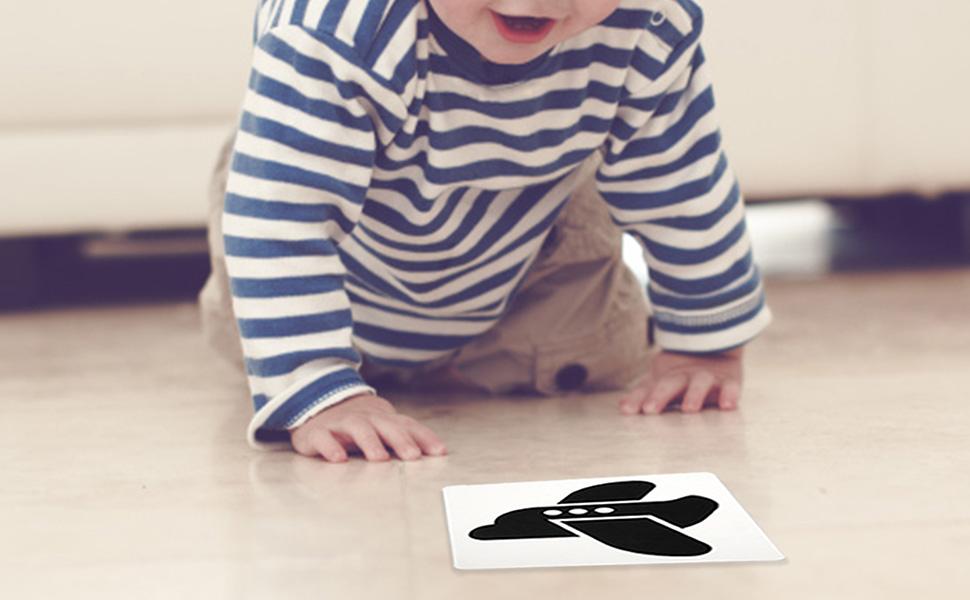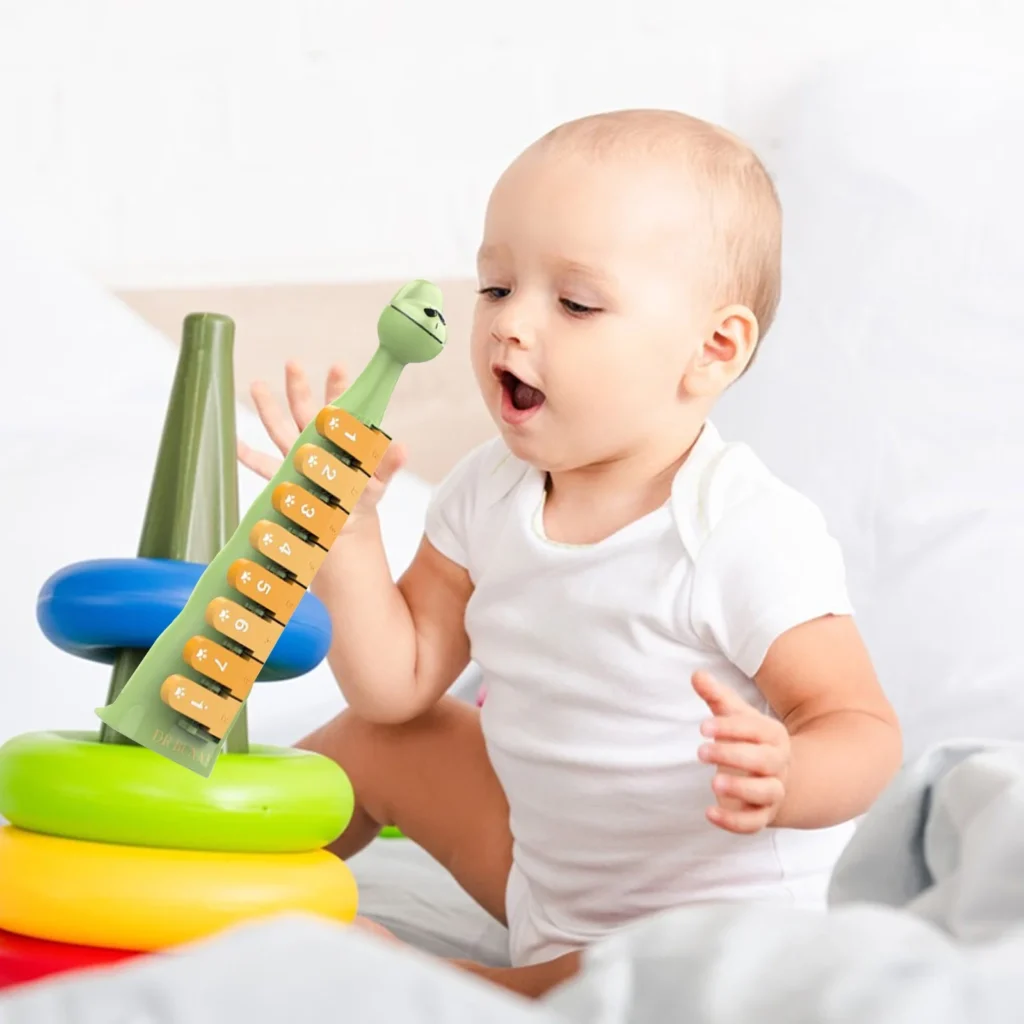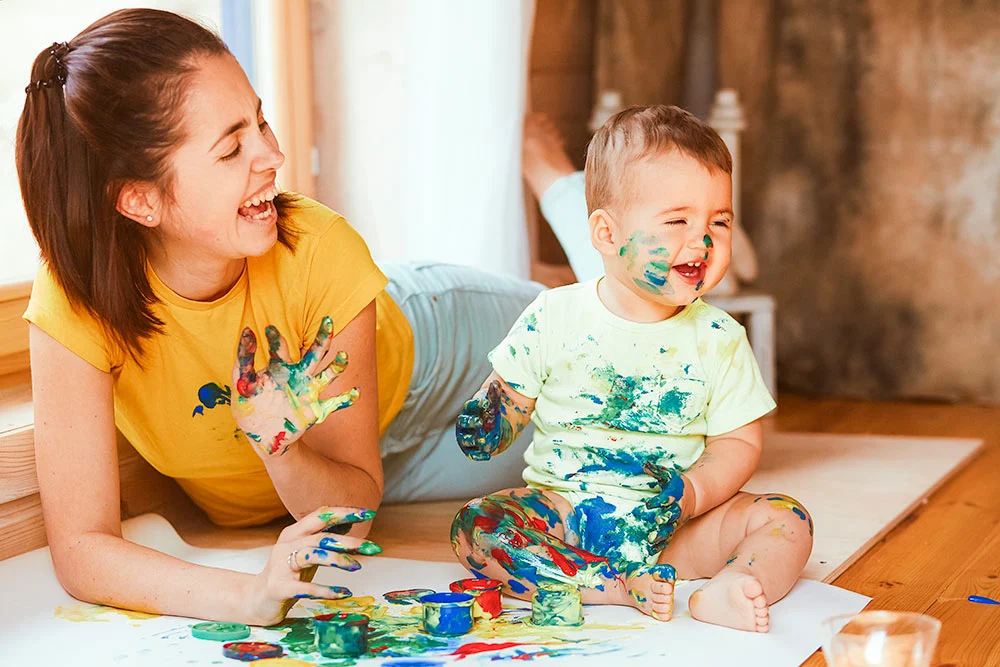Parents throughout history have given their babies rattles to hold and shake for a good reason. Tactile, noise-making toys like rattles hold a baby’s attention, but more importantly, we now understand that they influence early infant development.
Benefits of Sensory Play for Babies
Sensory play is any activity that stimulates one or more of a child’s five senses — sight, sound, taste, smell and touch. Activities that involve movement, spatial or bodily awareness and balance also fall into this category.
Stimulating a baby’s senses encourages exploration and grounds essential skills for future learning and growth.
- Brain and cognitive development ─ When babies play with objects, their brains form new connections and pathways. These provide a foundation for your child by encouraging them to master more complex tasks as they move into their toddler years.
- Motor skills ─ Fine and gross motor skills are the tools your baby needs for grasping, holding, crawling and eventually walking. Tactile activities will help your child learn all the other coordinated activities we take for granted, such as running and writing.
- Language and social skills ─ Rich experiences encourage communication and language acquisition. If you ask your little one what they are doing, they will hear new words and ways to express themselves, even before they start to talk.
- Emotional regulation ─ Sensory activities can often be comforting for babies. Musical sounds or comforting textures can help them self-soothe, setting up good emotional regulation habits for life.
Types of Sensory Play to Support Your Baby’s Milestones

Source: amazon.co.uk
Your baby will reach many developmental breakthroughs in their first year of life, including numerous sensory goals you can encourage through play. Use various games, objects and techniques to provide a wealth of early childhood experiences.
Tactile
Touching, holding and feeling are the most obvious and familiar types of sensory activity. Babies learn about pressure, vibration, textures and temperature by handling and exploring different objects. Activities like sensory bins — in which you fill a container with different textured things, like rice or sand — encourage their fine motor skills.
Auditory
Playing with objects that make sounds is essential for developing your child’s hearing. You don’t need expensive toys for this — think pots and a wooden spoon or crinkly paper. Sing lullabies, play music and read to your baby or narrate your day.
Vestibular
Sensors in the inner ear activate and regulate balance. Make a game of holding your baby in various positions, or visit a playground and try a baby swing. The ability to look around while in motion is an early precursor to good balance.
Proprioception
These activities help babies learn how their bodies move and where their arms and legs are in space. Tummy time is one of the best ways for infants to build body awareness. Your baby should get 15 to 30 minutes of daily tummy time by around 2 months.
Easy Sensory Play Ideas for Babies

Source: walmart.ca
Babies start learning about the world from the moment they’re born. With a few simple materials and a watchful eye, you can turn everyday playtime into powerful learning experiences your baby will love.
- 0-3 months: Show your baby black-and-white or high-contrast patterned cards or books to stimulate visual development and focus.
- 3-6 months: Offer safe, soft fabrics such as cotton, silk and fleece for your baby to touch and grasp. Let them feel the different textures with their hands and feet or gently stroke the fabric against their face. This age group also loves holding and shaking lightweight rattles.
- 6-9 months: Fill a shallow container with water and supervise closely as your baby splashes and pats the water. Mix plain yogurt with natural food coloring to make edible finger paint, then let your little one draw on their high chair tray or a piece of paper.
- 9-12 months: Fill a basket with differently textured household items and let your baby explore these while you supervise. By this age, babies also enjoy playing with simple musical instruments like a drum or xylophone, which they can bang to make different sounds.
Sensory Play Helps Your Baby Thrive at All Stages
From newborns to almost toddlers, all babies benefit from sensory toys, games and experiences. Add sensory play to your daily routine and watch your baby’s development soar.

